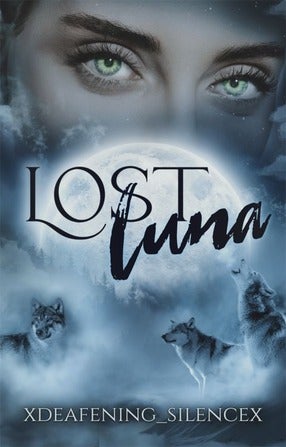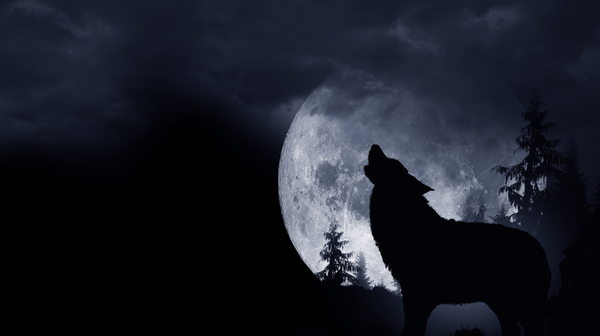Protagonist ~ noun
the leading or one of the major characters in a drama, movie, novel or other text
Nearly all stories that ever existed have a main protagonist. From Twilight to Macbeth, you will find most books centred around one person. So, in order to write an outstanding book, you need an outstanding character, right?
In my series Lost Luna, we live through Nova who came during a time where I felt lost in the world. I just had my second son and lost those I thought were close to me. After a dream one night, I decided to write.
Establishing character identity
A main character needs a strong sense of purpose. They need a personality, quirks, an appearance, and emotions. Such simple things must come together differently for every character. Sometimes, a lot of people write such similar characters. It’s why I went on to create Nova the way I did.
 The creation of Nova
The creation of Nova
She starts the way any cliché werewolf lead does. Raised with no recollection of her family, abused by her pack, she finally meets her mate. It’s like werewolf 101, right? Because it is so cliché in the beginning, I had to make a character that would stand out. But I also needed to make sure I didn’t stray from what I wanted. Note taking and writing frequently really helped.
Importance of a solid backstory
A healthy background leaves no room for oversights. Note down all the traits you would love your character to have and link them to any events you think may have happened in their past. Give the reader a solid understanding of why the character is the way they are!
Is it because of their appearance or heritage? Do their surroundings/their home impact how they perceive themselves and others? Are they mute because of an abusive person, or have they just lost their tongue after ratting out the head vampire’s secret?
Nova stutters because she has major anxiety talking to people she is uncomfortable with. She is subdued because she always gets name called and abused by her supposed peers.
Envisioning a character’s evolution
Once you have a solid backstory, you need to think about who you want your protagonist to become. For example, the cliché ‘weak to strong character’ needs a lot of work in between. In Lost Luna, Nova does not become a warrior despite the cliché she lives in. However, she does become a witty, loving person who can sometimes scare the butt off the men in her life with a simple look. It’s how I wanted my character, my luna, to be. I knew I wanted her to be like this because sometimes change can just come from your environment. For Nova, I didn’t want to change her too much because I portray part of myself through her.
As Alexander den Heijer once said – "when a flower doesn't bloom, you fix the environment in which it grows, not the flower."
But getting there is the fun part, it is where you can explore so many things. The people, the hierarchy, the country, the laws, even the weather can affect how your character behaves and are great places to draw inspiration from. For example, Nova could easily be led astray by her fear, but I gave her a strong friendship group to support her.
Writing builds a character
The craft of writing and character strength
From this, comes your writing. How you write a character can impact how strong they are. Do a quick google of how to write if you are unsure; it is easy to learn but there are also apps like Grammarly and ProWritingAid that help so much for free!
Sometimes being too textbook can make an inner monologue a little flat.
Interaction and character evolution
A strong protagonist interacts with various kinds of characters and places in their world, which brings the reader an entirely new perspective. A love interest can bring out quirks or confidence, and a friend can bring laughter. I created my male lead, Phoenix, to be a typical alpha male. However, I wanted him to open up to his inner empath and love Nova unconditionally. Not a standard, grey male.
If your character is isolated like Nova was in the start, it’s difficult to boost that world. Again, who you want your character to become should be looked at here. Those notes you took. The ones where you said you want your character to be empathetic, funny, or quiet. Those ones. You got them? You don’t? You’re just reading this for fun? Eh, okay, I will continue.
Consistency is key
Take note
Make those notes and look at them regularly. Plot point in the same document or notepad. Think about how the events can link into your protagonist’s life. Convey descriptions and emotions through an inner voice, and their surroundings. In Lost Luna for example, Nova would isolate herself in her room, take long baths, or do something in the garden if she was sad.
Do you see the repetition here? Consistent writing and note-taking makes such an impact on your characters. Keeping track of their quirks, important quotes, and events can help you build up a character without any holes. By working out your character on paper, you can build around those notes in your work. And then you can finally write.
Make them relatable
Draw from personal experience
Nova was a character that I developed based on my own internal anxiety. Thrown into a world of confusion and uncertainty, anybody is bound to be nervous when abuse was your entire existence up until that point. So, instead of holding back, I wrote my heart and soul into my work. Holding back on your emotions as a writer can sometimes leave your work feeling… subpar.
The power of emotion
Emotions are the heart of every main character, and complex protagonists need that diversity if you want the readers to enjoy reading them. After all, a reader is living your protagonist’s life through their eyes, so you want to make it feel just right; they are your Goldilocks. Minus the whole angry bears…
In the end…
It is your world, your character. You want to write a certain thing, just write it. Don’t let somebody else hold you back. Make a character you’d be proud of in real life.





















